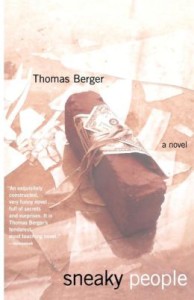
Back in the 1960s, when I began reading in earnest beyond the boundaries of textbooks and science fiction, novels characterized by critics as “black humor” were popular, and I ate them up. (That’s black as in dark or cynical, gallows humor, not African-American.) This was the heyday of Joseph Heller’s Catch-22, Bruce Jay Friedman, Thomas Pynchon, Kurt Vonnegut, John Barth, and, sometimes, Philip Roth. Thomas Berger, the late author of Little Big Man, graduated into this school of writing, too. Sneaky People if a great example of black humor.
Estimated reading time: 3 minutes
Sneaky People, which appeared in 1975, is a good novel because it was written by a consummate pro with an admirable command of the English language and because it so faithfully evokes life in America in the closing years of the Depression — not because it’s funny. I’m sure some readers found it so, but I was taken much more with the descriptions of Depression-era lifestyles: the rampant racism and anti-Semitism, the sexual repression, and especially the frequent references to the cost of everyday purchases (a hamburger for fifteen cents, fifty cents to pay the teenager down the block to cut your lawn, a good pair of shoes for twelve dollars, eighty-five cents for a carton of cigarettes, and, I’m sure, a good five-cent cigar). Sneaky People is a historical novel, and a good one.
Sneaky People by Thomas Berger ★★★★☆
Here’s the setup: Buddy Sandifer, who has both the ethics of a used-car salesman and owns a lot full of them to prove it, is a flashy dresser with a wife he has decided to kill, a busty mistress (a prostitute) he plans to marry, and a fifteen-year-old son named Ralph. Buddy can’t keep his pecker in its place, and Ralph has inherited his preoccupation with sex. When Buddy offers the “colored” handyman at his used-car lot two hundred dollars to murder his wife, his troubles really begin. Meanwhile, Ralph is getting himself mixed up in trouble of his own, dragged into law-breaking by his brutish friend, “Horse” (Horace). As both tales creep forward in alternating chapters, they gradually move closer to each other and ultimately intertwine in a multi-part conclusion that’s full of surprises.
To stretch a point, you could call Sneaky People a crime novel, but it most certainly doesn’t make the grade as a mystery or thriller. I picked it up because some self-important and probably delusional book critic listed it among the 100 best mysteries and thrillers of all time: if this book fits his definition of that genre, I can only imagine what else he might have included on the list. (I can’t remember: maybe I’ve repressed it.)
For related reading
If you enjoy reading history in fictional form, check out 20 most enlightening historical novels. And if you’re looking for exciting historical novels, check out Top 10 historical mysteries and thrillers.
You might also be interested in Top 10 great popular novels.
If your taste runs more to genre fiction, check out:
- 20 excellent standalone mysteries and thrillers
- My 20 favorite espionage novels
- 10 top sci-fi novels
And you can always find my most popular reviews, and the most recent ones, on the Home Page.

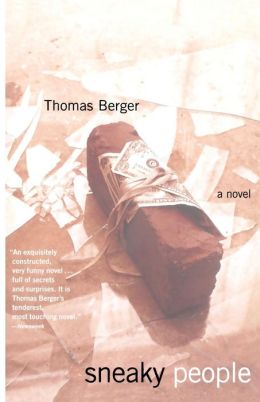
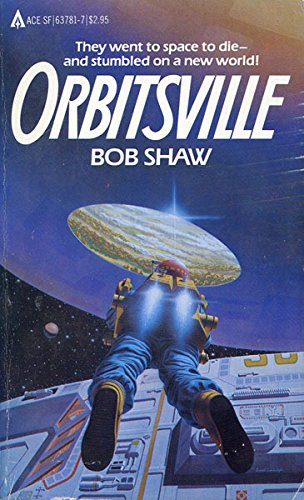
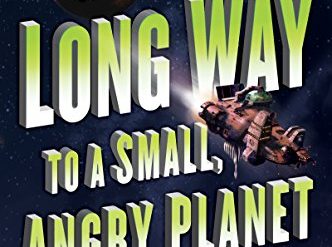
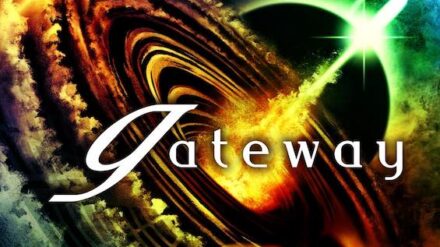
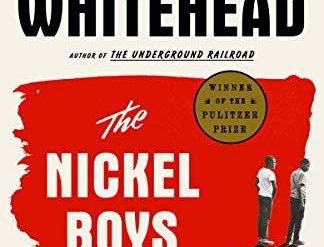





















Looking forward to this, Mal. I find Ross Thomas to have this same breed of humor. His book The Fools In Town Are On Our Side combines something of an espionage story with small-town corruption: http://www.amazon.com/The-Fools-Town-Are-Side/dp/0312315821 Thanks as always for your recommendations!
Thank you for the recommendation, Andrew. I just bought the book for my Kindle.